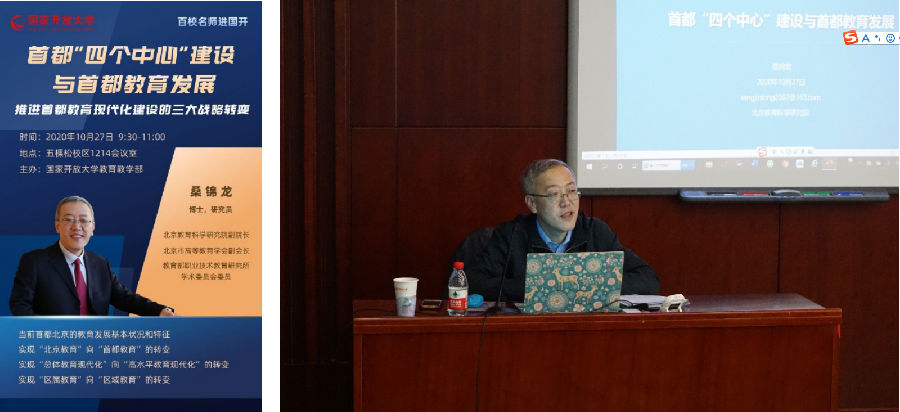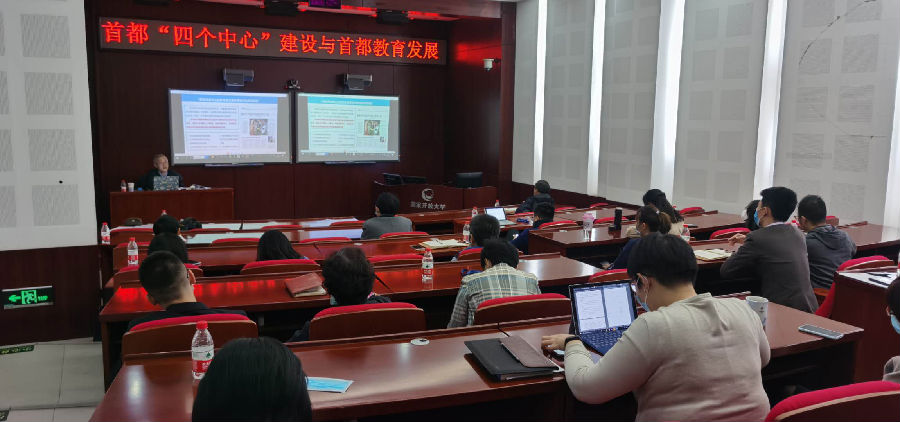 On 27 October 2020, the Lectures by 100 Famous Teachers programme of the Open University of China (OUC) invited the deputy director of the Beijing Academy of Educational Sciences, Sang Jinlong, who is also a researcher there, to give a special lecture titled The Construction of "Four Centres" and Educational Development of the Capital.
On 27 October 2020, the Lectures by 100 Famous Teachers programme of the Open University of China (OUC) invited the deputy director of the Beijing Academy of Educational Sciences, Sang Jinlong, who is also a researcher there, to give a special lecture titled The Construction of "Four Centres" and Educational Development of the Capital.
The lecture was organised by the OUC Faculty of Education.
General Secretary Xi Jinping, at the National Education Conference, stated that, while education is a major national focus of the Communist Party of China, Beijing, the capital, as the nation’s leading player, is of special importance. Establishing equitable access to high-quality education in the capital is essential to the goal in the “new era” of establishing a harmonious and livable world-class capital, and realizing the dream of rejuvenating the Chinese nation
Sang Jinlong has worked hard to place the modernisation of education in the capital on a scientific foundation.

He believes that it is necessary to reconsider the place of education in the urban development of Beijing, as the national centre of politics, culture, international communication, and scientific and technological innovation, the "Four Services" he takes to be needing enhancement.
He pointed out that establishing and implementing a new approach to development in the capital, with education boosting both its core and non-essential functions, and promoting the coordinated development of Beijing, Tianjin and Hebei, are the major strategic tasks of reform and development. Specifically, the following changes will have to be made.

First, the focus of education reform should be on Beijing as the capital, emphasising both its role as a model for the nation, and the importance of establishing the highest quality of education there.
Second, the focus should be on making Beijing a model of the highest quality of education, not just matching but exceeding global standards, which will mean promoting the coordinated development of education, the economy, and society in the capital, and establishing an internal unity of scale, structure, quality and efficiency within the city’s education system.
Third, the reform should encompass Tianjin and Hebei along with Beijing. The 13th Five-Year Plan launched coordinated development of education in this region, including promotion of it, progress in boosting non-essential functions, more frequent cooperation among schools of all types and levels, and research into such development. To continue deepening this development, solution-seeking and reform-driven policies are essential, with the direction, strategy and management of coordinated development carefully supervised, breakthroughs in key areas sought, and the construction of a long-term mechanism for coordinated development promoted.
After the lecture, Sang Jinlong and the teachers attending had an in-depth discussion of the reform and development of basic education and personnel training, the deployment of continuing education in Beijing, and other topics.
By OUC Faculty of Education